Columns
The Story Of My Life With Ojukwu – Bianca
Sept 8, 2012 – The Story Of My Life With Ojukwu – Bianca
Mrs Bianca Odumegwu-Ojukwu, widow of the late Dim Chukwuemeka Odumegwu-Ojukwu, recently traditionally ended her six months mourning.naijagists.com
In this exclusive interview with SUN reporter in Enugu, Mrs. Odumegwu-Ojukwu, who was recently appointed Nigeria’s Ambassador to Spain, opened up on her marriage to the late Ikemba Nnewi. She recalled memorable moments with her late husband. She also recalled Dim’s encounters with armed robbers on two occasions. Bianca, who was speaking for the first time since the burial of Odumegwu-Ojukwu, also talked about disturbing family issues that have arisen since the death of the Igbo leader as well as the crisis in the All Progressive Grand Alliance.
Interview Excerpts:
Who is Bianca Ojukwu?
I am the sixth child of His Excellency, Christian Chukwuma Onoh, former governor of the old Anambra State, and Mrs. Caroline Onoh, who was a principal. I am from Enugu-Ngwo (that is originally) in the present Udi Local Government Area. I started off my education at the All Saints School, from where I went to the Queens School, Enugu briefly before going to the Ackworth School for my secondary education.
The Ackworth School is actually a Quaker school in Pontefract, West Yorkshire, England. From there, I went to St. Andrew’s College in Cambridge where I started my Advanced Level, after which I went to the Cambridge Tutorial College, where I concluded my A-levels. From there, I went to the University of Buckingham. I wanted to do a combined honours degree in Politics, Economics and Law. I really wanted a mix of subjects so I was at the University of Buckingham pursuing that degree in Politics, Economics and Law. My father, of course, would prefer that I studied straight Law. I come from a family of seven lawyers and my father made no bones about the fact that he wanted all his children, if possible, to study law. Of course, I granted his wish.
I came back to the University of Nigeria, at the Enugu Campus, and that was where I obtained my law degree after which, of course, I went to the Nigeria Law School.
How was it growing up? Did you spend any time in the village or was it an all-abroad thing?
We all actually grew up in the village because my father wasn’t very keen on having us live in town. In Enugu, of course. He had a huge estate and he had multiple houses so we could have lived in a variety of the locations, but it was important for him that we lived in the village.
Even when we were transferred to the United Kingdom, because most of my brothers and sisters, after primary school, left to pursue their education oversees. When we come back for the summer, he would send us to the interior part of the village where his uncles and his aunts and so forth lived. Where there was no electricity and he would make us go and spend some days with them. We would go to the stream, we would go with them to farm, we would fetch firewood and we would learn to cook with the firewood. He said it was important to him, that it was important we got some grounding and got an idea of the basis of life, which would help mould character. We would come back to our own home and he would want to know how many people in the village we were able to meet, to talk with and to familiarise ourselves with. It was important to him that we were well grounded in the village and their way of life.
He would insist that you know the village barber, the butchers, the women selling tobacco, the akara sellers, by name essentially. He said this is your future because if you don’t have some kind of relationship, if you don’t identify with the life from the cocoon, as he would put it, it’s going to be hard for you to cope in a society that is fast changing. He said you all are going abroad at an early age and that is a disadvantage because you are going to be studying two different cultures. But what is the most important thing in all these is that there is a balance and if there is a tilt in the skill, it must always tilt towards your society and your way of life.
So, I thank him essentially for the grounding I have today because when I go down to my village, I feel like I never left and I can identify families, I can identify the local folklore, I know the taboos, I know the evil forests, I know the streams that only the locals can go to and the ones that people who have come to live in the community can go to. The good thing of being in Enugu is that it offers me the opportunity to go home for funerals and for various cultural festivals and a lot of other things that we do at home and it is only later in life that you realise how important that type of upbringing is because the strength we have is in our people. When something happens to you, when there is some kind of tragedy or catastrophe, it is these people who rally round and offer you some kind of a cushion, some kind of solace and you never really feel alone in such circumstances.
And I have tried to do same with my children and that’s the reason my children, apart from my daughter, who is abroad, my sons are here and I have tried to give them the sort of upbringing that I had. I take them down to my village, which is nearer, I also take them down to Nnewi from time to time. I take them to the farms, to the yam barns, places just to identify those basic things that children of nowadays are not familiar with because they don’t have opportunity to go to the village. I take them to normal village square with a lot of sand. When they were younger, they used to go and play with the other children and come home all dirty. Though it’s still a challenge, they are doing better than they would have done had I not put in that effort to ensure that they are not purely urban children raised in the town with no concept of village life and knowledge.
Having qualified as a lawyer did you have time to practice?
My father had a chamber called Rockonoh Law Chambers. As I told you, I come from a family of lawyers. Mostly he was involved in land cases, land disputes. What he wanted essentially was for everybody to graduate and join his law firm and he knew I didn’t really have that passion but I was glad that in order to please him it was a profession that I went into and I don’t regret it today because it has taught me a lot of skills.
Most importantly, negotiating skills. I realised very early that it was something I wasn’t really cut out to do. I wanted to go into business, franchising. What I had wanted to do was to set up my own brand of beauty care product so that I would start running company of personal care products. Right now, I am the Managing Director of Bianca Blends Incorporated. We have over 25 different products, essentially beauty products, in our stable. They are mostly geared towards skin care issues and we are doing very well.
How did you get involved in beauty pageants?
I remember when I was in class four at the Ackworth School and every year we would watch the Miss World contest and you will see girls representing every country in the world and I used to watch the contest. We would all hurdle in front of the TV in the common room and watch the contest and I used to say to my dorm-mates: “one day when I go back to my country I am going to contest and I am going to go to Miss World.”
It wasn’t essentially a project but it was something I had in my to-do list. Before then…when I went to Cambridge for my A-levels, I had taken part in the Miss Martini Contest organised by the Beverage Coy Martini Rossi. I went into the contest. They were looking for the Martini Girl as it was called in those days. To my shock, I won the contest. The prize was a year’s modelling contract in Tokyo. When I won, I was petrified because there was no way, during my A-levels, I could leave and go to Tokyo and take up the modelling contract. At the time, my uncle was the Deputy High Commissioner in Scotland when Nigeria had a mission then. He called me and said: “are you mad? Do you not know how much your father pays for your school fees and you think you are going to get up and go to Tokyo all in the name of modelling? Go right back to you studies.”
So, I had to give up and declined the offer and went back to school. So, after that, with the new-found confidence, I said whenever I got back to Nigeria, I was going to take the next step and that was how I took part in the Most Beautiful Girl in Nigeria pageant in 1988. My aim was essentially to just get the opportunity to get to an international pageant and I must say I was very lucky because, for some reasons during my year, it was almost like winner-takes-all arrangement. There was just one beauty queen and you were that iconic figure that would go to various countries to represent your own country in beauty pageants and you are treated, literally, like royalty and I had the opportunity of visiting so many countries from Mexico to Russia to places that I never ever would have just woken up and decided that I would go to. Singapore, Taipei, Peoples Republic of China, Hong Kong, Japan. It was just amazing.
So, it was a very tedious period for me. I got the opportunity to…right after winning the Most Beautiful Girl pageant, I left to go to the Miss Africa Pageant, which took place in Gambia, the same year 1989 and to my shock and horror I won that pageant. I said then, there is hope. I came back home for Christmas. By the time I had won the Miss Africa Pageant, my father, who was not very keen on my participating in the pageant, was a little bit more agreeable so that by the time I now went for the Miss Charm in Russia, he was so accommodating and he was so proud. One day, he came back and said to me: “do you know I was at the airport, my staff brought me my ticket and somebody walked up to me and said: ‘Onoh, are you Bianca’s father?’ You know that is one thing your father prays for. You pray that there will always be a light in front of you.” He was particularly proud. He was always in a position where people say are you the former governor of Anambra State? But this time, it was ‘are you Binaca’s father?’ So, he came back and called some of his friends and said: ‘can you believe, look at this little girl, somebody had the nerve to come and ask if I was her father. But I knew really that it was a proud moment for him. He supported me.
When I went to Russia for Miss Charm, he gave me money, he gave me the moral support and also when I went to Singapore, so that by the time the Miss Intercontinental Pageant came up, he was the one providing funding for my wardrobe and other accessories that I required. He would say: “whatever you want, just let me know.” And by the time I won the Miss Intercontinental, then the sky was the limit and I got the opportunity of going for Miss Universe, which I found tremendously enjoyable, and from there I was able to get some modelling investments for fragrance, for holiday villas, for some beauty care products.
How Was Your Marriage To Ojukwu?
I think that I made the…in fact, I consider myself the luckiest woman in the world. I made a very good choice of a husband. He was a very charismatic figure. He was a very enigmatic figure. But most of all, he was a very kind man and so many things endeared me to him. When I met him, he wasn’t particularly wealthy, but he was very proud to always tell you: ‘you know my father was a very rich man, I did not follow in his footsteps, I chose to be a revolutionary.’ But he would always make it clear: ‘you know I did not invent my circumstances, they fell on me and the life that I live today is a function of what I have had to inherit from the burden of history.”
There were too many things about him but most of all his empathy. He was a man that you could only really predict in one thing and which was his total lack of tolerance for injustice and so many incidents would come to mind. One day, I would say that really I was so touched, I was in a car with him and his driver was taking us somewhere. By then we were not married. We got to a junction, there was a woman crossing over. She clearly had gone to the market. She was carrying quite a lot and there was a little child that she was holding unto, trying to cross the road and the driver just blared the horn. As the woman was rushing out to the road, he blared the horn and was not ready to give a kind of accommodation for the woman to cross over. Ah! My husband was so incensed and it was a miracle we didn’t have an accident that day. He tugged the man from the back seat and said park. So, the driver had to park the car.
He said: “step down from the car, go to that woman, apologize, take what she is holding across the road and then come back.” So, the woman looked bewildered and as the driver started walking towards her, she almost started running away but the driver called to her to stop and walked to her, took her bag. There was a moment struggle and then he explained to her and took her and the bags across the road. He came back to the car and my husband said to me: “Nne, do you have any money in your bag?” because, of course, he hardly ever carried money. So, at that time, I looked, I had some notes, not very much, and he said: “please let me have it.”
I tease him and said: “you are always borrowing money and you never paid me back.” So, I gave it to him, he said to the driver: “go back to that woman and give her this money and I hope you have apologised.” He said, yes. The driver went back, gave the woman money and then came back. When he came back, my husband said to the driver: “hand me the keys,” which I thought was very strange because I had never seen him drive. He said to the man: “You are sacked.” I tried to intervene, to beg him…I said: “who is going to drive us? I’m certainly not going to drive.” He said: “I will drive.” I said: “you haven’t driven in so long, why do you have to do this? I know you are upset, I know you are angry.” He said: “well this man will not drive me.” He took the keys from the man, got into the car because the man must have believed he was joking. He got into the car and started driving. When I tried to approach the subject, I was a little bit afraid because I did not want to distract him. So, we drove to our location in silence. Yes, he was driving a little slower but at least we got there. So I could establish that he could drive quite well.
When we got there, I said to him, don’t you think you were a little bit severe in your response, particularly as you have made him go do this, offer some kind of restitution. He said to me, you know if he had done that to another man of his size or another man slightly bigger than he is, it’s easier to forgive. But what kind of man would see this pathetic-looking woman with her child struggling just to cross the road and want to intimidate her by shooing her off the road in panic? He said there are certain things that are reprehensible and this is one of those things.
He should pick on somebody his own size and he must have a reason to go home and reflect on why he lost his job. Once he is able to establish that, the next time, he would have more empathy towards anybody in that sort of situation. Much as I didn’t understand it at that time, when I look back, I say yes he was right. He was a man who hated any kind of injustice and he would never sit still, he must react. I am sure his friends always have a lot of stories to tell about him. There was a similar incident where a policeman was kicking a teenager on the floor on a side street and people had gathered but nobody was saying anything.
He just jumped out of the car, I have never seen…you know for his age you don’t expect that level of agility, but he was really able to get there, disarmed the policeman and said to him: “what gives you the right to exhibit this sort of brutality?” He took him by the collar and everybody there started hailing him. He was so upset and he said to the people: “how can you all stand back and watch this sort of thing happening? What did this boy do? If he is guilty of a crime, take him to the police station but I will report you to your superiors.’
For me, those were the aspects of him that I find intriguing. He never for a moment thought about the danger to himself in coming to the defence of others. And surprisingly, I don’t think that he placed much value on his own life and that’s why a lot of the times I told people that he wasn’t difficult to be married to because he never really would want to give you much trouble because everything around him…I mean there were lots of challenges that he had to grapple with. But him as a person, you’d have to force him to eat. He will never say to you I’m hungry. If he is sick, he will be in so much discomfort, so much pain but he will never say it.
You will basically have to drag it out of him if he’s got a headache. Lots of time, he would say to you: “Don’t worry about me, it would come and it would go.” So many times, pain was his companion and he took it quite well. I used to say to him: “look, I need to know how you feel at any given time so that one can gauge on days you don’t feel too well so that you take things a lot slower.” But he always believed that…he would say: “what is this life? When your time comes, there is not very much that you can do.” He was very philosophical about life.
Ojukwu’s Encounters With Armed Robbers
On two occasions, he had been unfortunate enough to be stopped by armed robbers. The first encounter, there was a blockade and they made them clear to the side of the road and with their heavy weapons approached the vehicle. There was a policeman that was in front of the vehicle who, by this time, had disrobed himself. He had removed his uniform and was only wearing his singlet.
One of the robbers, a very thickset man, as my husband described him, approached and said everybody step down from this vehicle. Everybody stepped down from the car, including the driver and my husband’s friend and the policeman. But my husband refused to step down from the vehicle. So, the leader of the gang was so incensed, knocked, opened the door and said: “Step down! Why are you still sitting in that vehicle, do you want to die?” My husband said in a calm tone, “I will not.” The man said, “eh, I will show you. Who do you think you are?” He made to activate his weapon and my husband replied him, “I am Ojukwu.” The man brought a torch, shown the torch on his face and started screaming “Ah, na Ojukwu, na Ojukwu; na our oga, na oga!” His accomplices rushed out from the bush, about eight of them.
They all rushed out and they came to the car. By this time, he had opened the door but he was still seated in the car and they all took turns in shaking his hands. And they said to him: “Oga, what are doing on the road by this time and you know some of our group members are operating further up. What are we going to do now?” They immediately ordered a pick-up van that drove out from the bush, about three of them jumped unto the back of the pick-up van and they said: “ok we will accompany you. We will take you all the way to Enugu.” And they accompanied him. They were shooting in the air until they got to the tollgate in Enugu. They came out again shook his hands, turned and went their way. That was how my husband came home. The driver had to be admitted in hospital for shock. The policeman had to offer thanksgiving mass. My husband’s friend tells the story up till this day. He said it was amazing. So, in the course of our marriage, each time he upsets me, I would say to him “oga ndi ori” (oga of thieves), which he found very amusing.
A similar incident also happened because he used to travel often very late at night. They had a similar encounter. They just stopped him but once they realised it was him, they were so excited. They came, shook his hands and waved him off. So, I think it was just a measure of how comfortable he was around people. Even men of the underworld appreciated how selfless he was, his service to the people and how anything that involved injustice, especially to Ndigbo, really was a great cause of concern. He was never tired of telling people about the sleepless nights, about the many phone calls he made regarding the Apo Six and it was a cause of regret for him until the day he died.
How Has Life Been Without Ojukwu?
It will be contradictory to say that one has ‘finished mourning.’ You can never finish mourning such a man because he is irreplaceable. Yes, the external, the mourning attire can go, but it’s still a very raw pain and it’s a wound that will take quite some time to heal. Because it’s not just a function of missing him, there were so many aspects that he dominated. He was like glue. He was like a stabilising factor. He had an answer to anything.
Any challenge that you are faced with, he could almost dissect and give you a sensible way forward and he was very accommodating of other people’s views. He didn’t believe he had a monopoly of wisdom. These are the qualities that very few people possess. These are the qualities that he will be remembered for a long time.
He was a wonderful father to our children and did most things that a lot of fathers didn’t have time to do. Even days when he didn’t feel too well and I am going to their school to visit them, he would always want to go and personally buy gifts for them on their birthdays. He would sit with them, tell them stories, teach them songs, he would come down to their level and he was always worried about their welfare. He was a gentle giant. He was good with the kids and they miss him, I’m sure, even more.
We learnt that there are some family issues trailing the death of your husband. Would you like to talk about them?
It’s something that has been there for a while. The only sad aspect is that my husband and his brothers are directors in their company and they have a management ration in the management of their companies. The eldest brother manages all the properties about nine of them here in the East. They also manage 12 of the properties in Lagos.
My husband manages five of the properties. So, they all had their agents managing these properties. Each person had his individual agents managing the properties on his behalf. Of course, with the demise of my husband, I have found that without consultation with me, one of the sons of my husband’s elder brother just turns up, decides that he has become a director of the company, which we are not aware of, and has decided that he wants to take over the properties being managed by my husband in addition to the properties being managed by his own father. This, I find strange because I have been in Ojukwu family for 23 years and I have never met him.
The time I met him was when my husband died, during the funeral, and after the funeral when he came up to me asking about my husband’s will and of course, I informed him that he has no right to ask about my husband’s will. My husband has children and has brothers. He only just happens to be a son to one of the brothers. So, he has absolutely no locus in what he is doing and I think it’s nothing but a plan to cause mischief. I have told them severally that their actions are very premature. In Igbo custom, you wait at least six months before you start broaching issue like that and then my husband’s will is yet to be read.
When the will is read, then hopefully, the will should be able to provide a pointer as to who replaces his interest in the company. But in the absence of all that, they are too keen to jump into the fray and annex the properties he was managing. I think it’s very wrong that they chose to do so through the backdoor. In any case, I have refused to join issues with them. I have informed them that as his widow, I have rights as his children also have rights. So, they cannot plan on negating those rights. But it would be prudent for them to wait until his will is read and at least give some grace. We had had an ugly incident when he was in the hospital early in 2011, when a rumour filtered in that he had passed on in London.
His younger brother invaded our residence in Lagos with thugs, ostensibly to take it over. It took the intervention of Chief Ralph Uwazuruike to restore some kind of order. He had to ask him: “Why do you have to rely on rumours? You hear that your brother is dead, your brother who is in London, whom you have never gone to see for one day in hospital and then you decide to invade his house.” He told him that it was an abomination in Igbo culture and that such an incident should never repeat itself. So, these are things that are part and parcel of certain family situations.
But I am hoping that these are things that will be resolved amicably, because these properties, when the time comes, you leave them and go. In all honesty, the Ikemba himself was a very fair man and he didn’t try to lord it over his brothers. He was always very accommodating. I see no reason they should try and take advantage of the situation just because he is no longer there. Yes, he is their brother, but they have no right to inherit what is his. He has children and they should wait for the will to be read.
What is your view on the ongoing crisis in APGA? Don’t you think the internal wrangling could destroy the party your husband nurtured while he lived?
The APGA crisis is a testament to the fatherly role that Ezeigbo played in making sure that, as the national leader of the party, in all that time, we didn’t have trouble brewing. He was a unifying factor. As I said, he was a stabilizing factor and he was a very patient man and more than anything, he was tolerant. If it were not so, this party could not have survived. He was not in any way a godfather. He gave everybody their own independence to run the party and he accommodated every view.
More than anything, he was willing to sacrifice, subjugate his own interest for the survival of the party. It’s sad. I think he will be quaking in his grave to realise that these people he left the party in their hands, have not done well to nurture the party. And, of course, the blame should be evenly distributed. I think that he more than anything tried to ensure that the party should be run in the way any national party should be run. He was desirous of making the party a formidable force in the South East reminiscent of the old NPP days. He was also not happy about the fact that in the Board of Trustees, you know major organs of the party, were not peopled. He was anxious about the fact that the Board of Trustees has only two members – himself as the chairman Board of Trustees and Dr. Tim Menakaya.
Till the time he became sick, he would always ask that the party be expanded, that more people be allowed into the party and that organs of the party needed to be functional. And that he was very concerned about the concentration on Anambra State. He wanted the party to diversify and he wanted the party leadership to essentially make in-roads into other states, especially in the South East. So, the restructuring of the party has always been a major issue, which was not undertaken…as a matter of fact, we found that as the days run by, party offices across the federation were being closed down and there seemed to be a concentration of party activities especially around Anambra State.
He was also very apprehensive that the party was losing a lot of goodwill at the grassroots. So, it became imperative, after his death, that this situation had to be looked at once again because we were losing our members, we were losing elections, I mean we were fast running out of time. Of course, he was the party’s lucky mascot. We lost him and we could find that a lot of things the party could hide under were now brought to the fore.
That’s why we have been asking stakeholders for a little more internal democracy, a little more transparency in the ways things are done and an inclusion of foundation party members and other members at the grassroots because we had a situation where the interest of our party members were being subjugated in favour of people who recently arrived from other parties, that would just use the party for the elections but in soul, they were of the parties they left to come and join us. Members of our party were not happy and we felt that these issues were discussed within a larger congregation of party members so that we could chart a course and that’s really the genesis of the problem that we had because our chairman was not keen about enlarged gathering for party members to discuss these issues.
I also felt that the governor himself was too involved in the business of governance that he didn’t make sufficient efforts to be acquainted with the only functional organ of the party being the National Working Committee. Certainly, no other member of the party appointed members into the NWC. If you have 29 members and all of them are appointed by one person, it’s certainly not going to be a democratic arrangement. Ezeigbo himself has no appointee in the National Working Committee and it’s a situation that is regrettable and the governor himself was not well acquainted with the members. He was too busy with administration and the chairman was totally in control of the party. That type of recipe is what gives rise to the problem that we are facing today. Yes, we are undergoing a crisis, but I am hoping that it is a crisis that will strengthen the party.
Can one describe your appointment as Nigeria’s ambassador to Spain as a step into politics?
I was born into politics, as you well know and the position is not essentially a political position. It’s a diplomatic assignment. I am going to be representing the interest of Nigeria and the interest of Nigerians in the host country.
There are feelers that you have political ambition and may contest election in 2015. Are you thinking in that direction?
Well, I certainly haven’t got those feelers you talk about.
Okay then, let’s put it this way: do you have political ambition?
Everybody has certain ambitions, but essentially, I believe that those ambitions are realisable if your people want you. If they don’t, well it’s a pipe-dream. But most importantly, anybody who has any intention really of running for political office, has to bear in mind that they must fulfill the interest of their people in such a way that they trust them enough to put their future in their hands.
I thank Nigerians for their support during the burial. I want to thank Ndi-Igbo for the tremendous support they offered our family, not only just during the illness of Dim Chukwuemeka Odumegwu Ojukwu, we had so many goodwill messages, so many get-well messages from Nigerians from all over the world. If there was ever any doubt that Ndi-Igbo love him, that was the period that they chose to show it. And, of course, during his funeral, they were absolutely magnificent. All the traders, in the northern, western and eastern states that shut their shops in solidarity, especially on the day of his burial, all the various communities.
I mention the communities because he spent a lot of his life on mediating between communities, brokering peace in various communal crisis. He really spent time in pursuit of peace and a lot of those communities had the opportunity to mourn with us when he passed on. I give the credit to our people. They were magnificent. They really showed the deep love they have for him in the ceremonies leading up to the burial proper. It was like a full month of funeral ceremonies and everyday they turned out in very large numbers to mourn with us. They staged one event or another and I must thank them. I must thank so many people that identified with us. So many people that provided succour, that provided aid. Of course, I can never thank enough the President and the First Lady.
Once they got wind of the fact that he had suffered a stroke, as you know, the President himself came down to see him, sat with him, prayed with him and throughout our stay in hospital when we were in the United Kingdom, he would send people from Nigeria to come and see how he was doing. He would always call to find out. The First Lady also offered a lot of support. Also, what happened during the burial, he ensured that Dim Ojukwu was given burial unprecedented in this part of the world.
So, I thank the President and his wife, I thank the governors of the South East, South-South, Niger State, Rivers State, Akwa Ibom, FCT, all the governors who contributed immensely towards the burial and Nigerians were amazing. Ndi-Igbo were absolutely amazing. So, I would like to use this opportunity to thank them all. (culled from the sun newspaper)
































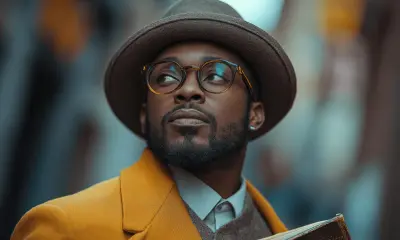

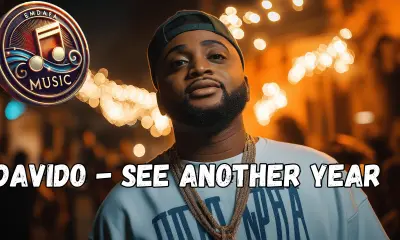
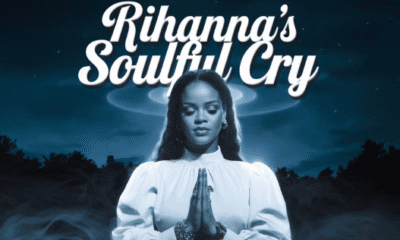
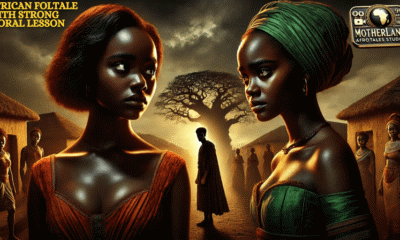
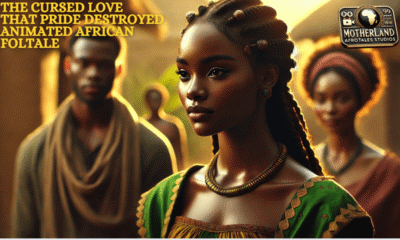

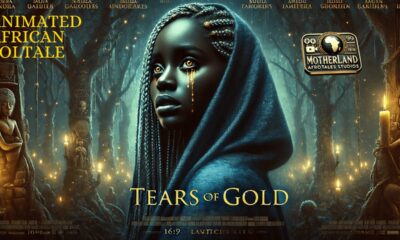
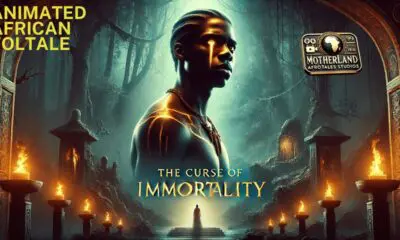
Razak Oluwafemi Yekinni-Bello
September 9, 2012 at 1:09 AM
BIANCA HAS SAID IT ALL; BUT THERE IS ONE THING SHE DID NOT ADD, OJUKWU WAS THE ONLY NIGERIAN WITH NATIONAL FOUR CARDINAL POINTS. AS A LEADER, HE LOOKED YOU STRAIGHT IN THE EYES WHILE TELLING YOU THE TRUTH.
Anonymous
September 10, 2012 at 11:10 AM
well I wish u all d best in life. God bless u.
coleman
September 10, 2012 at 12:27 PM
this story lie lie too much. All i could conclude you your husband and una family lived for yourselves. You people are not hero. Any Nigerian could do such things. Selfish people
Dr David
September 11, 2012 at 4:08 PM
My dear, he was indeed our hero. Ojukwu was a rare breed, if people of his pedigree were in our different leadership positions, Nigeria would have been a paradise on earth.
Heminut Omkecke
February 22, 2016 at 4:39 PM
Nigeria to enterities had and been paradise by the author and finisher of the whole earth, Our Biafra lord Chief Odumegwu quaeterly did his fit towards galantly as Nigeria, we lost him but God gonna fufil his works
Hemis